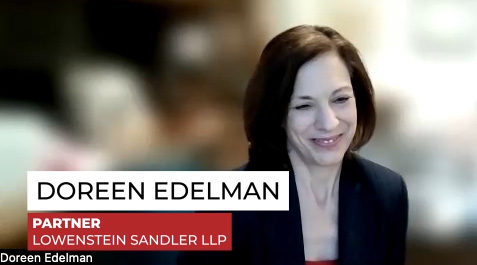
Watch: What’s Cooking in Trade Regulation for the Coming Year?
Doreen Edelman, chair and partner of the law firm Lowenstein Sandler’s Global Trade & National Security Practice group, details the regulatory requirements that international traders encountered in 2022, and those they can expect to see in the new year.
The past year saw a wave of new or tougher regulations impacting global traders, both on the import and export sides, Edelman says. Importers need to know exactly where their components are coming from, in part to comply with strictures against products from China’s Xinjiang Province. And exporters must understand how their goods are classified and where they’re going.
The last year also saw a tenfold increase in regulations impacting trade with Russia alone. But traders need to exercise unprecedented due diligence in dealing with all types of goods, regardless of their origin or destinations. The requirements are especially tight for companies doing business with the U.S. military, which has banned any parts from China due to concerns over information security.
Expect to see even more regulation and government oversight in 2023, Edelman says. The Republican-controlled House of Representatives will be doubling down on restrictions and embargoes on goods from China and other countries deemed to be violating rules on human rights, national security and intellectual property protection.
Foreign investment is another area to watch. The Committee on Foreign Investment in the United States (CFIUS) will be penalizing companies that fail to notify it of certain transactions with businesses or governments in other countries. To stay compliant, companies need to be able to untangle their supply chains and know the identities of every party involved in the purchase, production and movement of goods. Government will be paying particular attention to third parties, an area of risk that must be given more attention.
Bottom line, says Edelman, “you have to understand your flow of goods, and particularly your supply chain.”
